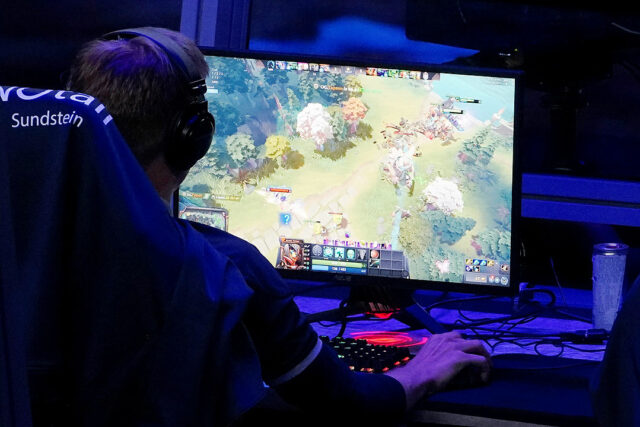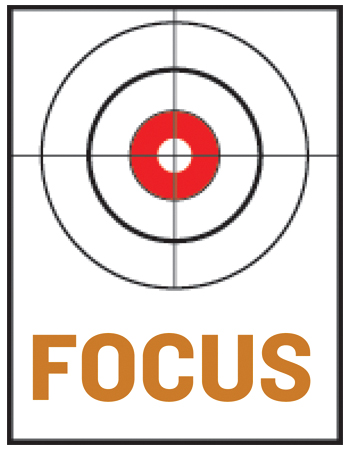
By John Victor D. Ordoñez, Reporter
TWENTY-THREE-YEAR-OLD Kendrick L. Cheah, one of the top Super Smash Bros. Ultimate players in the Philippines, has shown that video games aren’t just a child’s pastime anymore.
Having won the fighting game tournament REV Major in 2018 as PSI Force, the road to becoming a top-ranked electronic sports (esports) player was not a walk in the park.
“I wasn’t sponsored by a team,” Mr. Cheah said in a Facebook Messenger chat. “I had to solely rely on leftover allowances from my mom, as well as the cash prizes I won in previous tournaments to attend upcoming gatherings, tournaments and events.”
 Transportation costs to venues were expensive especially when one gets stuck in Manila’s notorious traffic jams.
Transportation costs to venues were expensive especially when one gets stuck in Manila’s notorious traffic jams.
Money wasn’t easy until a professional esports team sponsored him, but he continues to worry about his team’s finances.
That playing video games competitively could be a salaried profession was nonsense a few years ago. Now, professional gamers make a decent living and turn into millionaires on some occasions.
Salaried pro gamers in the United States earn as much as $60,000 yearly, while tournament prize money can go as high as $50,000, according to Esports Grizzly. Video game streamers earn as much as $2,000 a month.
TNC Predator, a Philippine-based esports team known for their high placings at international Dota 2 tournaments, has won $4.6 million since it started in 2013, according to esports portal GosuGamers.
Several local groups have sought more government support for the Philippine esports industry, including seeing it as a legitimate creative sector and sport.
At a House of Representatives hearing in March, the Philippine Esports Organization proposed an economic zone that will house a studio where esports events can be broadcasted and boot camp facilities where local esports athletes can train.
The group also cited the need to improve internet infrastructure, build more airports for easier foreign participation, as well as incentives for esports organizations.
“The Philippines is a third-world country making a first-world innovation like esports work,” Kenneth Ian G. Alog, associate project coordinator at AcadArena Technologies, Inc., an esports tournament operator that also offers scholarships to players, said in an e-mailed reply to questions. “However, there are many infrastructure improvements that need to happen.”
“One example is minimum wage,” he said. “Unless it improves to a level that Filipinos do not find microtransactions in games or even reliable data an absolute luxury, then video games cannot be fully part of their lifestyle and the market cannot grow to a certain size for it to be viable for certain companies to open shop.”
The Department of Education (DepEd) also plans to integrate esports in the curriculum through game-based learning and physical education, according to a Powerpoint presentation shown at the House hearing.
Skills that could be learned include adaptive, creative and critical thinking, problem solving, new media literacy and self-management, among other things.
AcadArena’s support programs include scholarships and aid for esports athletes with a tuition coverage of as much as P25,000, a creator grant for streamers including tuition coverage of as much as P30,000 and an Axie Infinity scholarship grant, giving awardees a play-ready team, training and an eventual payout.
The Philippine video gaming industry is the 25th largest market in the world by revenue, with earnings of more than $572 million, according to Pangasinan Rep. Christopher V.P. de Venecia, who had sought an inquiry into the state of the sector.
Almost half of the country’s more than 110 million people play video games. Local game developers are also recognized globally.
The esports sector offers opportunities to generate revenues through creative avenues, namely streaming, shoutcasting and content creation, the congressman said in House Resolution No. 2394.
Despite the success of Filipino esports athletes in the country, the support structure is not enough. Teams, for example, have difficulty traveling overseas for international tournaments due to visa issues.
Filipino esports teams have won medals at international competitions, including the Southeast Asian and Asian games.
At the recent Southeast Asian games, Philippine Team Sibol won silver medals at the League of Legends and Crossfire events, while the Mobile Legends: Bang Bang team, consisting of players from gaming organization Blacklist International, brought home a gold medal.
GrindSky Eris, a Philippine all-female team, also claimed a gold medal at the mobile League of Legends: Wild Rift event.
Esports games fall under six major categories: fighting games (Tekken, Marvel vs. Capcom, Super Smash Bros.), real-time strategy (StarCraft II, Warcraft III), first-person shooters (Counter Strike: Global Offensive, Valorant, Apex Legends), multiplayer online battle arenas (Defense of the Ancients 2, Dota 2, League of Legends, Mobile Legends: Bang Bang), sports games (NBA 2K, FIFA Online) and digital card games (Hearthstone, Pokémon TCG).
‘VIABLE CAREER’
In the Philippines, the most popular is Mobile Legends: Bang Bang, probably because it can be played on smartphones. Other popular games are Valorant, Call of Duty: Mobile, League of Legends and Dota 2.
An esports player can be a professional video game player who competes for money or a streamer who seeks an online audience, Jose M. Alberto, a program coordinator at AcadArena, said in an e-mail.
At the height of the global coronavirus pandemic and booming cryptocurrency market, graphics cards used in more demanding video games and cypto-mining became harder to come by. Prices rose more than three times, with many retailers becoming the scalpers themselves.
“The demand was high and the supplies were almost nonexistent, especially since people needed their own PCs to work from home,” Sidney L. Mangaoang, who owns a custom PC building business, said in a Facebook Messenger chat.
Prices in most markets overseas have since fallen below manufacturers’ suggested retail prices -— after almost two years — in line with the cryptocurrency crash.
The crash has forced miners to sell their high-end graphics cards in the used market, causing prices both in the second-hand and retail markets to fall since the start of the year.
This may not matter much for a number of Filipino esports players, only half of whom have access to computer games. Most players are male, 30% are female and eight of 10 play games on their mobile phones.
The Philippines has the potential and market for a thriving esports scene. Globally, the industry has also proven to be a profitable venture, given the proper infrastructure and investment.
The average salary for a pro player in the League Championship Series, the professional League of Legends tournament in the United States, was $410,000, according to consulting firm YCP Solidiance.
Franchising also plays a huge part in esports, similar to the National Basketball Association (NBA), and serves to be the primary way for teams to compete against each other.
Incidentally, NBA teams like the Golden State Warriors and Houston Rockets have invested in esports teams, namely the League of Legends teams Golden Guardians and Clutch Gaming, which has since merged with Team Dignitas.
Grammy award-winning Canadian rapper Aubrey Drake Graham became a co-owner of the esports team 100 Thieves in 2018. Athletic legend Usain Bolt this year entered the world of online gaming as co-owner of Wylde, a fledgling Irish esports group.
Franchising also generates big revenues. The cost to franchise a team in the Overwatch League ranges from $20 million to $60 million.
Top esports organizations earn more than $15 million a year, with earnings mainly coming from merchandise sales, franchising and sponsorships, according to Forbes magazine.
Had the global pandemic not happened, investments from companies like Mastercard, Inc., Coca-Cola Co., Bayerische Motoren Werke AG and Nike, Inc. would have hit about $1.1 billion in 2020, with $822.4 million of that coming from media rights, advertising and sponsorships, according to YCP Solidiance.
Goldman Sachs expects $2.92 billion in revenue for the esports industry this year.
“Seeing as there’s passion and support, I do think esports has the potential to grow here in the Philippines,” said Mr. Cheah, the professional video game player. “Esports is a viable career as long as you know how to back yourself up should something happen. Passion, community and support are what will help the local esports scene.” — with Tobias Jared Tomas
For all the latest Business News Click Here
For the latest news and updates, follow us on Google News.
